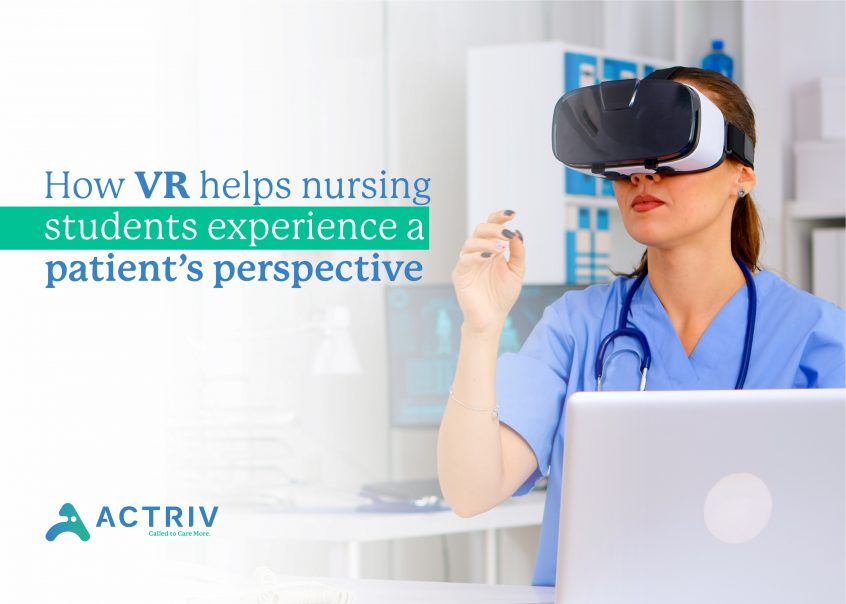Technology is changing the medical industry, and virtual reality (VR) is leading the way. VR gives nursing students a unique way to experience a patient’s perspective, providing real-world knowledge that helps in their careers. It also allows them to practice procedures and environments safely that may not be available in real life. This blog explores how VR can improve nursing education.
What is Virtual Reality?
Firstly, virtual reality is an interactive, computer-generated 3D environment. Nurses and healthcare providers can use it to simulate realistic scenarios without risking real-life patients. In addition, healthcare providers can use VR and, train in various environments, such as on a battlefield or during an outbreak of a highly contagious disease, without requiring expensive equipment or supplies.
How Can Nursing Students Benefit From VR?
Virtual reality (VR) is emerging as a powerful tool in healthcare. Nursing students can benefit from VR by gaining hands-on experience with medical equipment, improving communication skills, and enhancing their education
Gain Experience
Moreover, virtual reality allows nursing students to gain experience before working with real patients. They can become familiar with medical equipment and treatments, reducing anxiety and providing invaluable insight into the patient’s perspective.
Improve Communication Skills
Furthermore, VR helps nursing students improve communication skills, such as bedside manners and problem-solving skills. They can practice managing challenging conversations and building trust with patients, preparing for emergencies in real life.
Enhance Education
VR provides a safe learning environment for nursing students to gain clinical knowledge. They can develop new skills with virtual simulations, making trial-and-error easier. Using this technology, nursing students can become more confident professionals.
What the Future Holds for Nursing Students
In the future, VR will continue to play an essential role in healthcare education. Using VR in nursing curriculums can provide realistic training scenarios, giving students the confidence to work with patients. More creative ways of integrating VR into healthcare education will enable nurses everywhere to access top-quality training opportunities.
Virtual reality is an invaluable tool for healthcare education. It allows students to gain real insights into the patient experience without compromising safety. Through its widespread use in nursing curriculums, future nurses will benefit from improved training and knowledge that prepares them for both expected and unexpected scenarios. To learn more about how virtual reality helps nurses visit the Actriv Healthcare blog.

